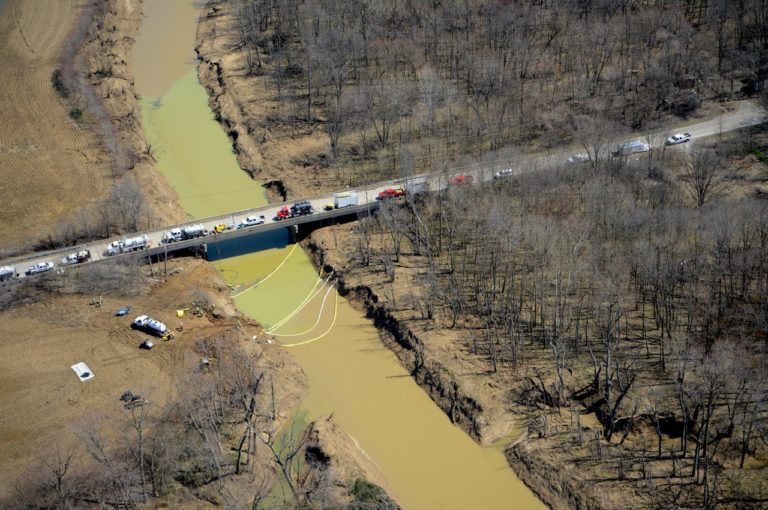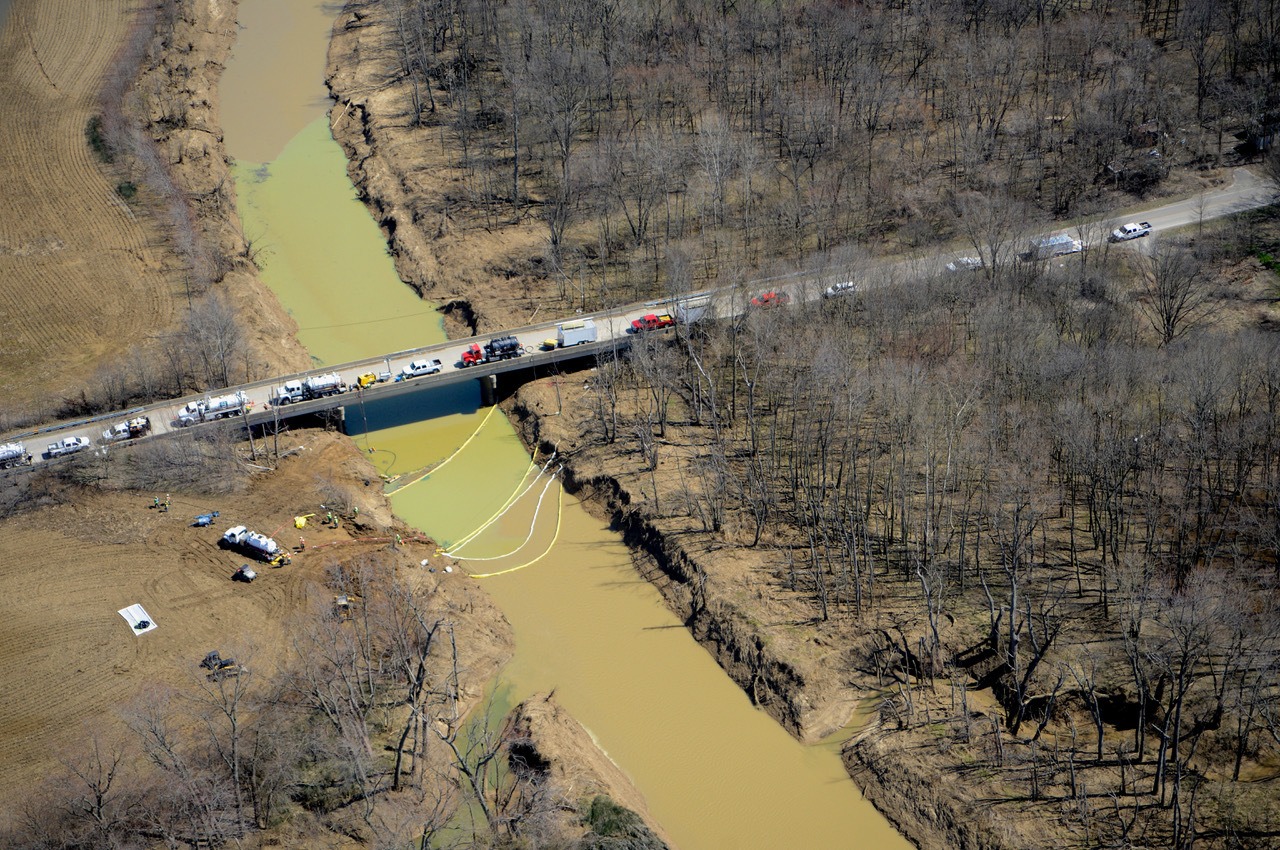Wabash Riverkeeper calls upon Marathon to study long-term impacts of diesel pollution
By: Waterkeeper Alliance

Another pipeline spill dumps approximately 42,000 gallons of fuel into Big Creek, tributary of the Wabash River
Wabash Riverkeeper Dr. Rae Schnapp is investigating a fuel spill from a pipeline owned by Marathon Pipe Line LLC crossing Big Creek near Solitude, Indiana. Marathon was first alerted to a breach in their Mount Vernon diesel pipeline Tuesday evening around 6:30 p.m. and crews responded to shut off the pipeline and set up boom sites to try to trap the fuel, according to the local Sheriff, Greg Oeth.
Marathon reports that approximately 42,000 gallons (or 1,000 barrels) of fuel entered Big Creek, which is a tributary of the Wabash River. The Indiana Department of Environmental Management has been the agency on the scene working on containment and removal. A company spokesman assured that the spill never reached the Wabash River.

“This is not Marathon’s first offense — it is their second major pipeline breach in 2 years,” Wabash Riverkeeper Dr. Rae Schnapp said. “On April 17, 2016, Marathon’s Two Rivers Pipeline released over 48,000 gallons of diesel into the Wabash and Ohio rivers, and it took nearly two and half days for the company to confirm that their pipeline was the source of the diesel spill. They need to do a better job of pipeline maintenance and they need to be held accountable for this pollution.”
Schnapp adds, “When the immediate crisis was over in 2016, Marathon reported that there was no impact on wildlife, but diesel fuel is toxic and no one is studying the long-term impact of these spills on the aquatic community. Wabash Riverkeeper would like to see Marathon fund such a study.”
According to the Pipeline and Hazardous Material Safety Administration, since 2006, Marathon has been responsible for 124 incidents, causing one fatality and three injuries, incurring over $96 million in property damage, and spilling over 20,000 barrels of fuel. These incidents include a 2011 spill of 378,000 gallons of gasoline, which registered as one of the twenty largest onshore oil and gas spills in the U.S. between 2010 and 2017.
“Marathon is certainly no stranger to fuel spills and accidents,” said Bart Mihailovich, Waterkeeper Alliance’s Senior Organizer for the Eastern U.S. “Like too many other pipeline companies, their carelessness and neglect is causing harm to waterways and communities along their pipeline routes.”
“Oil and diesel fuels contain a mixture of polycyclic aromatic hydrocarbons (PAHs) that can be toxic to aquatic organisms,” said Maria Sepúlveda, Professor of Aquatic Toxicology at Purdue University, who has been studying the impact of PAHs on fish early life stages since 2012. They affect normal embryo development and negatively impact growth and reproduction. These effects are particularly problematic in fish as many studies have shown PAHs are toxic to the heart.”
For more information about Marathon’s long history of spills, injuries and property damage, please see this Pipeline and Hazardous Material Safety Administration dataset.
For information on the aquatic impacts of fuel spills, contact Marisol Sepulveda, Ecotoxicologist for Purdue University, at 765-496-3428.